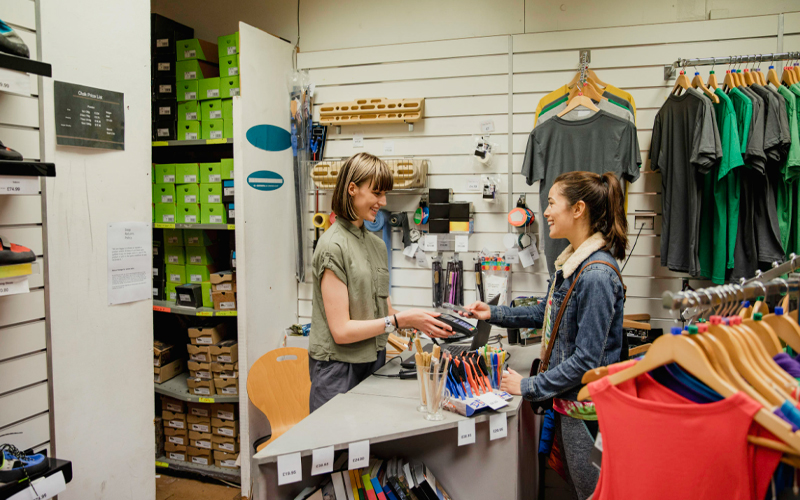Retail order fulfilment has evolved into a strategic differentiator, directly influencing customer satisfaction and operational performance. Whether it's delivering an online order or enabling click-and-collect, success depends on a streamlined, responsive, and technology-enabled fulfilment process. As e-commerce fulfilment grows more complex and competitive, businesses must adopt adaptive strategies and technologies to meet customer expectations and streamline retail logistics.
Defining retail fulfilment: Beyond just delivery
Retail fulfilment refers to the complete lifecycle of an order, from inventory management and order processing to delivery and returns. It encompasses both physical and digital channels, ensuring that products reach customers on time and in pristine condition, whether ordered online, in-store, or through hybrid channels like curbside pickup.
For organisations, fulfilment is no longer just a backend function. It impacts margins, brand perception, and long-term customer loyalty. Efficient retail fulfilment processes directly reduce operational friction, improve scalability, and drive revenue in both traditional retail and e-commerce environments.
The intelligent fulfilment process: AI as a game-changer
Artificial Intelligence (AI) is rapidly transforming the order fulfilment process into a predictive, responsive engine for growth. Retailers are deploying AI to:
- Forecast demand accurately and manage stock in real-time
- Personalise customer interactions based on purchase behaviour
- Automate repetitive tasks like picking, packing, and customer service
This shift enables a hyper-personalised, frictionless retail ecosystem. However, leveraging AI effectively requires more than just integrating isolated tools. Retailers need a strategic roadmap supported by modern infrastructure and cross-functional teams that align technology, data, and customer experience. When implemented holistically, AI becomes a catalyst for long-term retail transformation.
Retail fulfilment models: Choosing the right fit for growth
Retailers can select from various fulfilment models depending on their size, market focus, and operational maturity:
- Self-fulfilment: Full in-house control over storage, picking, and shipping. Ideal for smaller operations but challenging to scale.
- Third-party logistics (3PL): Outsources fulfilment to providers offering fast delivery, lower capital investment, and broader reach.
- Hybrid fulfilment: A flexible blend of in-house and outsourced operations to optimise costs and speed based on product, channel, or geography.
Other models include drop-shipping, where suppliers ship directly to customers, retail distribution for wholesale transactions, and retail drop-shipping, which handles orders placed through retail partner websites.
Key takeaway: Choosing the right fulfilment model, or combination, should align with your broader digital transformation and growth strategy.
Future-ready fulfilment strategies: From automation to omnichannel
To remain competitive, retailers must go beyond traditional logistics and embrace smarter, customer-centric fulfilment strategies. These include:
- Warehouse optimisation: Redesigning warehouse layouts with techniques like zone-picking and vertical storage to reduce picker travel time and improve speed.
- Automation and robotics: Integrating collaborative robots (cobots) and autonomous mobile robots (AMRs) for efficient, error-free picking and packing.
- Real-time inventory visibility: Deploying advanced Warehouse Management Systems (WMS) for accurate stock tracking and faster order fulfilment.
- Predictive analytics: Leveraging data to anticipate demand trends and prevent overstocking or understocking during high-volume periods.
- Localised fulfilment hubs: Using micro-fulfilment centres and dark stores near major customer clusters to reduce last-mile delivery times.
- Omnichannel integration: Centralising inventory across online and physical stores to allow for flexible fulfilment options, including ship-from-store and buy-online-pick-up-in-store (BOPIS).
- Proactive customer communication: Providing real-time tracking and responsive service builds transparency and enhances trust.
These strategies not only improve speed and cost-efficiency but also elevate the overall customer experience, critical for brand differentiation.
Retail fulfilment challenges: What’s holding businesses back?
Despite the opportunities, there are significant challenges that hinder fulfilment excellence, especially in the context of digital transformation:
- Fragmented technology ecosystems: Many retailers still rely on outdated or siloed systems, which make integration of modern fulfilment tools difficult.
- Data silos and inconsistencies: Disparate data sources obstruct a unified view of inventory and customer behaviour, limiting the effectiveness of predictive analytics and personalisation.
- Skill gaps and resistance to change: Retailers may lack the technical expertise needed to implement AI and automation solutions. Organisational inertia often slows down innovation.
- Pressure for immediate ROI: Short-term expectations from stakeholders can lead to half-baked implementations that fail to capitalise on the full potential of AI and digital infrastructure.
- Evolving consumer expectations: Today’s shoppers expect speed, transparency, and personalisation. Meeting these demands requires constant evolution in fulfilment capabilities.
Addressing these challenges requires strategic planning, investment in the right technology stack, and building cross-functional teams that embrace agility and innovation.
How can Infosys BPM make fulfilment your growth engine?
Infosys BPM empowers retailers with agile, end-to-end solutions that optimise supply chains, enhance inventory visibility, and streamline last-mile delivery. From omnichannel order management to AI-powered demand forecasting, our tailored services help you meet rising customer expectations while reducing costs and improving speed to market. Transform your fulfilment operations into a strategic advantage. Rimagine retail fulfilment—smarter, faster, and customer-first.








